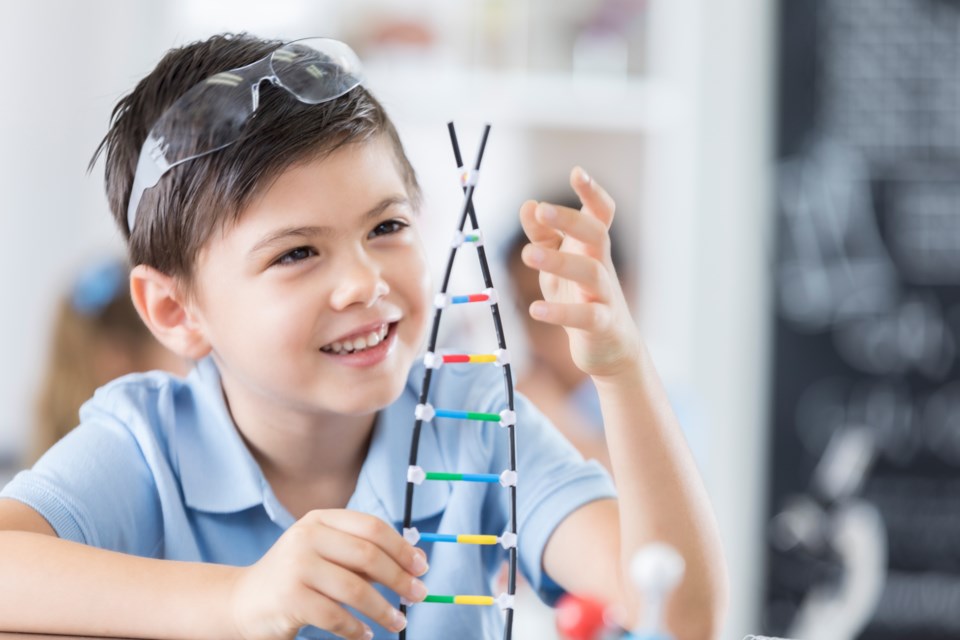These unprecedented times are a reminder to all of us about the importance of science and its impact on society. Citizens face significant cognitive demands in evaluating scientific evidence, models and explanations presented online or in media reports about both our ongoing climate change crisis and COVID-19.
In formal school settings, the important competencies to assess and evaluate science are learned primarily in science classes and connected disciplines under the moniker of STEM education. Science classes are a powerful place to foster these important competencies with elementary, secondary and post-secondary students.
But our educational systems should be doing more to ensure that STEM classrooms are places where relevant inquiry and analysis pertaining to real-life issues thrives. That can’t be done without changing the nature of student testing.
Squeezing out vital inquiry
Most student classroom activities align with what the teachers assess — including through standardized tests, such as those offered in grades 3, 6 and 9 in Ontario, or high school tests such as British Columbia’s Grade 12 graduate requirement.
When teachers largely assess students’ learning through easy-to-manage quizzes and tests or don’t dedicate suitable time to teaching science because of standardized tests, they squeeze out vital opportunities to immerse children and youth in scientific inquiry. The latter is particularly the case in countries such as Canada that typically focus their external (standardized) testing in language and mathematics.
For instance, science teachers could ask students to work in collaborative groups where they engage with questions related to critical topics such as health and well-being, energy and pollution — as well as climate change, food security and biodiversity. Teachers can create such projects as ways to assess students as they engage in scientific inquiry, using what’s called “performance-based assessment.”
Students could be involved with projects like evaluating the environmental quality of their school premises. They could be tasked with assessing biodiversity and air quality using established scientific protocols and materials and conducting research.
They can present their findings to teachers, peers and the broader school community highlighting issues and recommendations that school administration and staff may wish to consider to improve their school environment.
Standards-based curriculum
While not a new approach, performance-based assessment has fallen to the wayside in many educational systems because of narrow standards-based curriculum and high-stakes assessment policies.
Cross-cultural research strongly underscores the importance of providing greater synergy between what is valued by policy-makers through assessment and what educators want to teach and assess in schools. Building capacity for more authentic and innovative assessment requires system-wide commitments.
In Canada, performance-based assessment for science used to have a more prominent place in standardized assessments before 2004 (in the Pan-Canadian Assessment Program (PCAP). The Council of Ministers of Education notes in a 2004 report that:
“Unfortunately, fiscal and other constraints prohibited the administration of this ‘practical science’ component ….”
Policy-makers have never reinstated the performance component of this test, even though it showed how students were gaining competencies in scientifically inquiring into questions and solving problems. Ironically, these are the competencies we now find essential in our society.
Student-led investigations
In a recent study of how Canadian Grade 8 science students are assessed, educational researcher Man-Wai Chu and psychometrician Karen Fang reported, not surprisingly, that teachers used mostly classroom tests and quizzes.
Chu and Fang discovered that while teachers infrequently used some performance-based assessments, these didn’t tend to look like open-inquiry tasks where students generate questions, design investigations and come up with solutions. Instead, it looked more like teachers directing the tasks.
Authentic and meaningful performance-based tasks look like a synergy of a student’s minds, hands and hearts. Such tasks pertaining to scientific inquiry are essential if students are to effectively demonstrate competencies related to questioning, procedure and model generation, critical analysis of data collected, model and data assessment and communication of results to audiences that can evaluate their processes and products.
This process is far from linear, and requires students to think critically, be creative and adaptable, and work collaboratively — hallmarks of the scientific enterprise.
Meaningful STEM learning
The good news is that there are useful examples within our education systems that endorse a shift toward authentic and meaningful performance-based science assessment.
For example, the ASPIRE project is an elementary science program that links students to scientists in their communities using inquiry and project-based tasks.
A more robust interdisciplinary program is the newly created secondary school I-STEM program, which incorporates global competencies (C21 Canada), STEM learning outcomes, community connections and Sustainable Development Goals promoted by the United Nations.
The common thread in both programs is that they both demand classroom assessments that go beyond tests and quizzes, and require students and teachers to be involved in more authentic assessment tasks that facilitate real-world applications. For instance, in I-STEM students work in collaborative groups to solve a local community concern about stream erosion.
Students in these programs are assessed using performance tasks that require critical thinking, communication and problem-solving competencies, and that simultaneously immerse them into the productive yet non-linear practices of science.
Changing classroom assessment and large-scale assessments that include authentic and meaningful performance-based science tasks and prioritize relevant topics will help drive educational innovation in the classroom. Such forms of testing will contribute to educating students and citizens who can capably address global challenges for our common good.![]()
Xavier Fazio, Professor of Science and Environmental Sustainability Education, Brock University and Louis Volante, Professor of Education, Brock University
This article is republished from The Conversation under a Creative Commons license. Read the original article.
